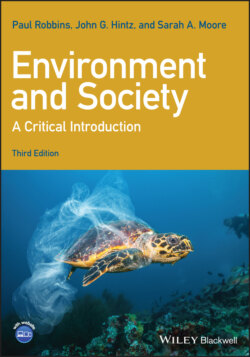Читать книгу Environment and Society - Paul Robbins - Страница 54
Non-market Values
ОглавлениеAt bottom, the market response model can only be deemed to be operating successfully if success is measured in strictly economic terms. When sperm whale oil became scarce and was replaced with fossil fuels, as actually happened in the nineteenth century, the outcome for people was negligible or beneficial. New resources, propelled by the scarcity of old sources, were made available through the magic of the marketplace. But what is the lesson of this story for the sperm whale itself? Long before market responses “kicked in” to send humans in search of new oil sources, the sperm whale was driven to the brink of extinction, a result that was only forestalled by the creation of international bans on whaling in the twentieth century. Indeed, global green markets have proven slow to adjust to the decline of rainforests, the plunge in biodiversity, and the potential catastrophic implications of global warming, raising questions about the capacity of trade to capture the value of these things, at least within the urgent time frame in which they will need to be addressed.
The problem is therefore not simply that the market may fail on its own terms (and indeed it does by the admission of many of its most enthusiastic supporters), but that its success can only be judged in economic and therefore anthropocentric terms. If there are values that cannot be captured in a market, like the evolutionary, aesthetic, or moral “value” of a species, what difference does it make that its depletion eventually allows its substitution by something else? While economic valuation allows us to identify what people might be willing to pay for abstract and intangible goods and services (i.e. the presence of sperm whales somewhere on the planet), it does not necessarily point a way for them to be valued, in monetary terms.
